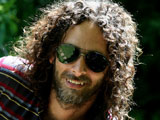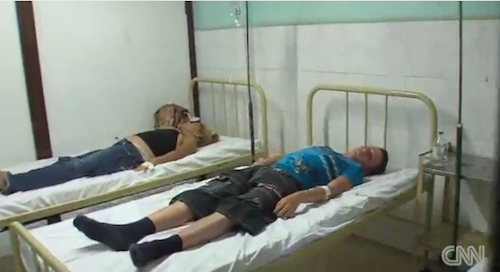Revolution in the Time of Cholera
by Orlando Luis Pardo Lazo / July 23, 2012 / No comments
During a Cholera outbreak in Cuba official silence means a public health risk
In Cuba, “official secrecy” is the government’s last resort now that its popular support is dead after five decades of Revolution.
The Cuban State acts with its back to the country, at the margins of world history, and even outside its own laws, with no legal opposition or free press. Those in power control matters of public affairs with the same intensity that they’d use to protect bedroom whispers.

- Is it worth-while to focus on the last images and letters coming from the inside of the last living utopia on Earth? Is Cuba by now a contemporary country or just another old-fashioned delusion in the middle of Nowhere-America? A Cold-War Northtalgia maybe? Can we expect a young Rewwwolution.cu within that Ancien Régime still known as The Revolution? I would like to provoke more questions than answers.

- Orlando Luis Pardo Lazo was born in Havana City and still resides and resists there, working as a free-lance writer, photographer and blogger. He is the author of Boring Home (2009) and is the editor of the independent opinion and literary e-zine Voces.
Paradoxically, in practice, politics is privatized in the proletariat paradise. As a result—embarrassing as it is to admit—we Cubans are the last to know how much is going on in Cuba.
This summer, rumors about seasonal maladies mentioned not only the highly dangerous Dengue virus, but also the outbreak of an infection that has not gripped us since the 19th century: cholera.
The cholera epidemic broke out on the eastern side of the Island (the area close to Haiti, where students arrive from). The Manzanillo and Bayamo hospitals there were silently put on medical alert and under military control. Days later, new diarrhea outbreaks appeared in the central provinces, and a quarantine room has now been created as an emergency measure in Havana.
Though the government delayed making a public announcement about the disease for longer than our freelance journalists and international correspondents did, perhaps to avoid scaring away the tourists that sustain our economy, the Ministry of Public Health finally decided to recognize a limited number of cases, including deaths.
No one, except for the official Communist Party, seems to have been authorized to give out information on the emerging epidemic. It is therefore impossible to calculate the level of risk. Asleep within the bubble of media manipulation, the Cuban population is not taking the necessary preventative measures.
Perhaps secrecy brings hypocritical salvation to the hygienic image of the State, but—in addition to being a flagrant human rights violation—their secrecy could end up being a double-edged sword: Who then will pay the price for this criminal irresponsibility?
Translation: Alex Higson





